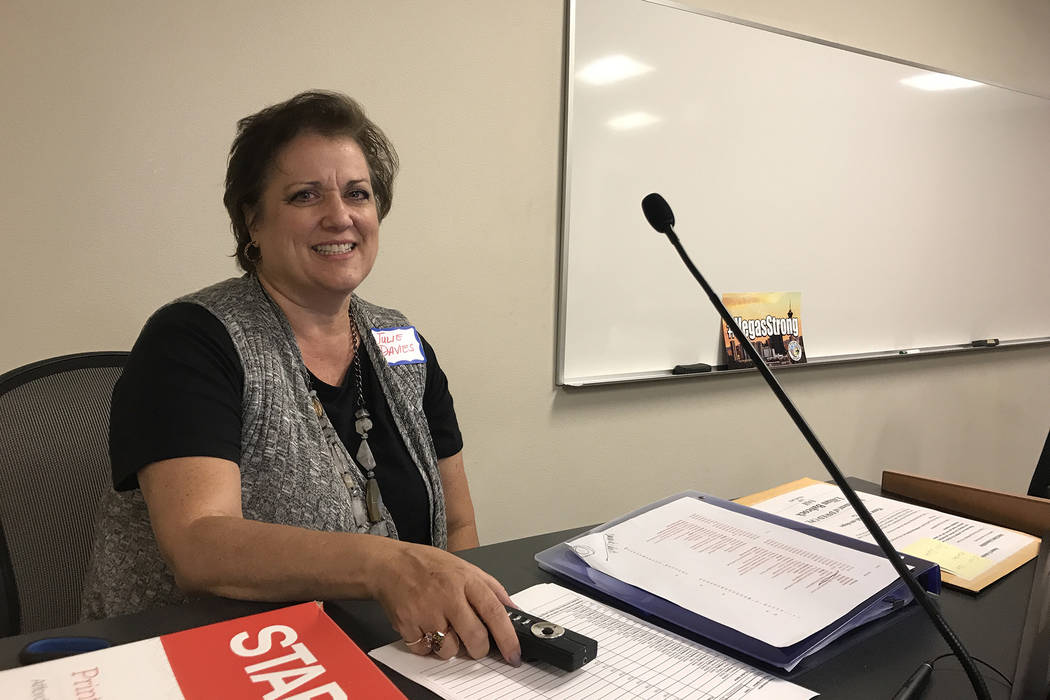CSN class a crash-course in operating short-term rentals

A College of Southern Nevada class on operating short-term rentals in Las Vegas offers the ins and outs of navigating what has become a popular but complex industry.
The two-day, $200 crash course is offered at the Henderson and West Charleston campuses three times this year and is taught by Julie Davies, an industry advocate who operates short-term rentals.
The goal is to teach prospective rental operators about local rules and regulations as well as how to turn a profit. That’s harder than it seems, Davies said.
Short-rentals are illegal in Clark County and Henderson, but the city of Las Vegas allows them in certain places — if operators get a business license and a special-use permit and pay operating fees and room tax.
Davies also emphasizes strategies on applying for a license, hiring an attorney and keeping financial records. The second portion of the class covers how to design and decorate the property, how to identify a target demographic and how to start taking reservations.
Davies approached CSN with the idea last year, said Lillian Babcock, the interim coordinator of workforce and economic development.
“Its not political. It’s providing students the opportunity to see the process,” Babcock said. “That was the priority for me and for our program. We’re not trying to wade into decisions being made above us.”
Most attendees at the workshop came with prior experience hosting through sites such as Airbnb, HomeAway and VRBO.
Attendee Vanessa Johnson has used Airbnb to rent out her Los Angeles home for six years, but after buying a second property in downtown Las Vegas two years ago, she’s had difficulty getting a business license to rent her property legally.
She’s upgraded and renovated the home, preparing to rent it out to guests, but hasn’t been able to.
“I planned to be back and forth and to stay in the house sometimes,” Johnson said.
She said it would be nice to have a house when in Las Vegas.
“But I also wanted to have the house pay for itself and earn income as well,” she added.
Going into the class, Johnson said she thought the city might issue her a license if she added extra security like cameras, noise detectors and even hired a guard.
By lunchtime the first day she learned that wasn’t the case — and that she would have to apply for a special-use permit and go through a two-part hearing process after all.
While some of the course text gets down to the nuts and bolts, other parts are more of an appeal on behalf of the industry.
“After some terrible incidents between homesharing hosts and guests and a few neighborhoods awakened by parties … some municipalities rashly reacted by imposing bans and ridiculous regulations that only made the matter worse,” the text, written by Davies, reads.
“In communities where they’re going to ban short term rentals, it’s not going to work. … It’s basic business,” Davies told the class. “If there’s demand, someone’s going to fill it. That’s why prohibition didn’t work.”
But Davies also stressed that even if someone disagrees with regulations, the law should be followed.
“I would never tell people to do it unlawfully or to do it underground because that’s just asking for more problems,” Davies said. “And I’m not a big fan of people who do it unlawfully because they’re undermining what we do lawfully.”
Contact Madelyn Reese at mreese@reviewjournal.com or 702-383-0497. Follow @MadelynGReese on Twitter.